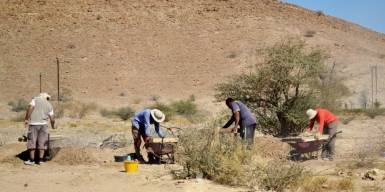WHAT CAN YOU DO WITH AN ARCHAEOLOGY DEGREE?
 Posted date: 07 Jun 2021
Posted date: 07 Jun 2021
What are the benefits of pursuing an archaeology degree? Here's some advice on what you'll learn on an archaeology course, what you should study to get into a degree programme, and what positions you can get after graduation. Archaeology is the study of human history and prehistory by excavating sites, analyzing artifacts, and examining physical remains all over the world.
Its topics include ancient civilizations and cultures, as well as human origins and early hunter-gatherer tribes, as well as the ancient environment and ancient arts and cultures. The dual technique of fieldwork and laboratory analysis is an important aspect of archaeology. Because archaeology is frequently studied in conjunction with anthropology, history of art, classics, or history, it is frequently concerned with literary evidence and the study of languages.
Archaeology will thus provide a foundation in specialized archaeological abilities, as well as more general abilities such as critical thinking, the capacity to construct a logical argument, synthesize large amounts of data, and articulate ideas clearly and persuasively both orally and in writing. Foreign language studies will be a requirement for many degrees.
The archaeological method, fundamental principles in archaeology, cultural archaeology, and field and laboratory methods are typical general modules on an undergraduate archaeology degree. Coursework or essays are typically used to grade archaeology work, although some schools will also examine your field and laboratory work.
Professional archaeologists, museum education, creation, conservation, and heritage are all options for archaeology graduates. Heritage manager, museum education or exhibits officer, museum curator, historic buildings inspector or conservation officer, archivist, cartographer, social researcher, or tourism officer are all positions you'd be great at. Archaeological contractors or consultants, museums, university archaeology departments, national heritage organizations, or municipal governments could all be potential employers.
Archaeology graduates work in a variety of fields, including education, media, advertising, and civil service, as well as business and industry. After their first degree in archaeology, several graduates pursue conversion degrees in law or teaching.
Posted By

GSP Admin




